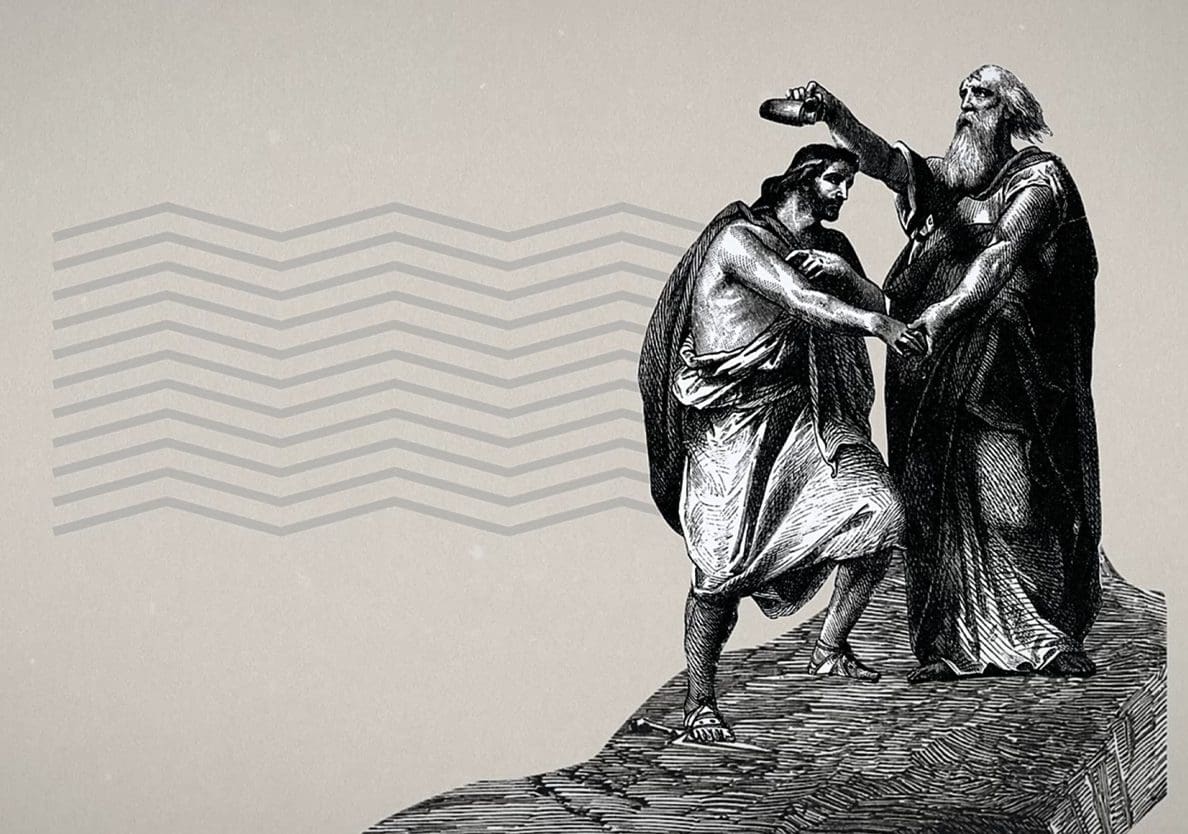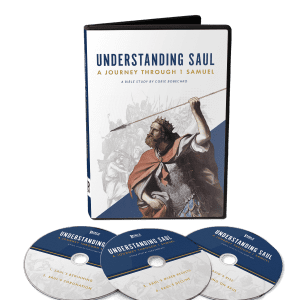The Biblical figure of Saul, son of Kish, marks a major transition for the nation of Israel, who at the time, had been existing under the leadership of Samuel, acting priest and judge. Samuel, with his distinctly providential birth and continued dedication to God had overseen a type of revival of the word of God that the nation had not seen since the days of Joshua. But as Samuel aged, the Israelites wanted more structured, orderly leadership. They wanted dynasty. They wanted a monarch.
This demand for kingship went against the order of God, and yet, like many instances in their past, God gave them what they asked for, He gave them a king that was tailored to them. In the text of the Bible, Samuel is told to, “Listen to them and give them a king” (1 Samuel 8:22), even though God tells Samuel who to anoint. This is in clear contrast to the next king of Israel, David: in this case, God tells Samuel, “You are to anoint for Me the one I indicate.”
This seems to show that God’s first choice of king was in accordance to the state of Israel, He gave them a king they deserved, then His second choice was for Him, David was the king that Israel needed to point them towards God.
“And the Lord said to Samuel, “Obey the voice of the people in all that they say to you, for they have not rejected you, but they have rejected me from being king over them.”
1 Samuel 8:7
This assertion gains some traction when careful attention is paid to the detail of the King Saul narrative. The way that it is written records the dark, concerning state and even irony of Saul as king. For example: When we are introduced to Saul, we are told that he is the son of Kish, a Benjamite (1 Samuel 9:1). This family alone made an extremely ironic choice of king because just a generation or two earlier, the tribes of Israel had made a pact to completely exterminate the Benjamites from existence because of their evil that was said to have surpassed even the icon of ancient evil, Sodom and Gomorrah (Judges 19-21). What’s more we learn that Saul was from the very city that emulated and surpassed Sodom: Gibeah (1 Samuel 10:26; Judges 19; Genesis 19).
Even Saul’s life as a Benjamite would have stemmed from the terrible accounts of forced marriage recorded in Judges 21, the slaughter of the people of Jabesh Gilead for the sole purpose of procuring brides, and the kidnapping of the women of Shiloh. These reasons may have sparked Saul’s incredulous comment to Samuel when he compliments Saul’s family, “But am I not a Benjamite, from the smallest tribe of Israel, and is not my clan the least of all the clans of the tribe of Benjamin? Why do you say such a thing to me?” (1 Samuel 9:21).


On top of this, we’re told that Saul’s father Kish was a “man of standing” or “man of valor” (1 Samuel 9:1) depending on your translation, which is the same Hebrew word used to describe the evil men of Benjamin (who were killed in the civil war) back in Judges (Judges 20:44, 46). Saul is publicly anointed king at Mizpah where the tribes had gathered to vow to destroy the tribe Benjamin a generation or so earlier (Judges 20:1; 1 Samuel 10:17), and like his surviving ancestors before him, when he is sought, Saul is found hiding from Israel (1 Samuel 10:22; Judges 20:47). Saul’s first action as king is also to, ironically, save the city of Jabesh Gilead that was previously slaughtered by Israel to get wives for his ancestors (1 Samuel 11; Judges 21:8-12), and his call to arms of splitting up his oxen and sending the pieces out to Israel is remarkably similar to the horrifying all to arms recorded in Judges 19 (the prostitute dismembered).
Even David defeating Goliath with a sling would have been immensely ironic since Saul was from the tribe of Benjamin–––known for their left-handed slinging prowess, “Among all these were 700 chosen men who were left-handed; every one could sling a stone at a hair and not miss.” (Judges 20:16)–––and Goliath was calling out for Saul the whole time. It would make Saul look weak.
Saul’s life is a tragic one, a human one, filled with hope and with judgment. It puts on full display the natural flaws of man and showcases the unfaithfulness of Israel to their covenant with God. In Saul, God gave His people the king they asked for, the king they deserved, and then, He gave them the house of David from whom would one day come the Messiah.
If you’d like to watch a deeper presentation on King Saul, then check out Understanding Saul: A Journey Through 1 Samuel available right here on our website.

Corie Bobechko is a daily co-host, speaker, and writer of Bible Discovery. She also hosts a YouTube channel that shows how history and archaeology prove the Bible. Her heart for seekers and skeptics has led her to seek truth and share it with others. Corie also has a Bachelor of Theology from Canada Christian College.









